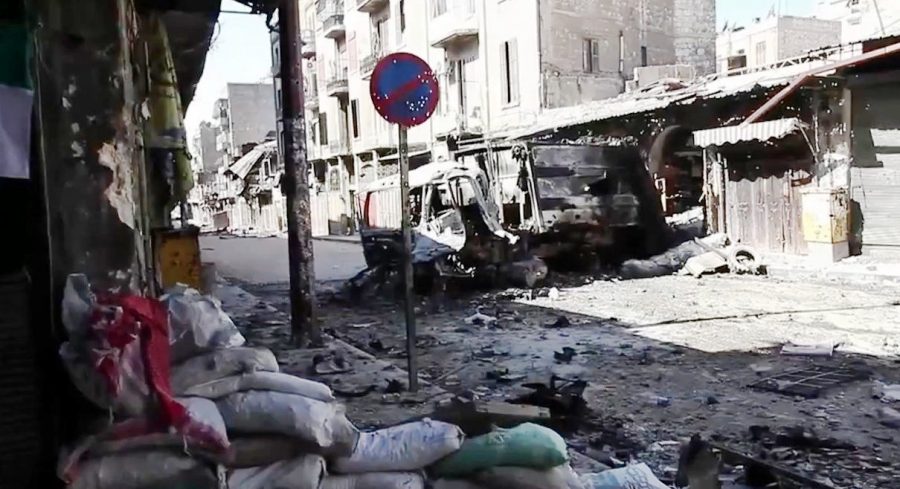Syrian students reflect on leaving their home
In Aleppo, Syria, many decimated streets can be seen as the state of war-torn Syria declines.
January 27, 2017
Freshman Soumaya Zaheerlden pauses, her smile slowly fading as she remembers the scent of the jasmine flowers that surrounded the front doorstep of her small home in Abu Rumanah, Syria.
“It’s been hard,” Zaheerlden said. “Actually, hard is an understatement. It’s been the most difficult experience to endure, having to leave the only life I have ever lived and start a new one in a country I’ve never even visited prior to moving here.”
She has trouble maintaining composure, trying to speak as the tears roll down her cheeks.
“I can’t find the words to explain the pain my family has gone through within the last two years since being forced to leave Syria because of the war,” Zaheerldeen said.
Zaheerlden closes her eyes and begins to explain how her life in Syria compares to American life.
“It was different. Everybody knew everybody. I was best friends not only with people my age, but a lot of my mom’s friends too. I would wake up to the voice of the old man Abu Mohammad calling out for people to buy his watermelons down the street my house is on,” Zaheerlden said. “Now I wake up to the sound of my mother crying and my grandmother praying for our return to Syria.”
Zaheerlden continues to speak as she simultaneously wipes away the tears rolling down her cheeks with the side of her sweater’s sleeve.
“It’s not easy at all,” Zaheerlden said. “If one thing is certain, though, I will return. All of us. All Syrians will return home, stronger than ever. I’m sure of it.”
As heartbreaking as her experience is, Zaheerlden is not the only Chantilly High School student who was forced to flee war-torn Syria.
“I left my homeland around five years ago, a year after the revolution began,” junior Naji Zien Al-Abdin said. “Leaving Syria was definitely the hardest thing for both my family and I. I mean, it was the only home we ever knew.” He looks away in hopelessness, remembering the friends and family he was forced to leave behind.
“Members of both my mom and dad’s side of the family still live there,” Zien Al-Abdin said. “The hardest thing was not knowing whether that goodbye to them was a ‘See you later within this world,’ or the next.”
Unlike Zaheerlden, Zien Al-Abdin views his refuge from Syria as a positive experience.
“I’ve gotten used to the States,” Zien Al-Abdin said. “We had no freedom of speech in Syria. Literally, everything was blocked: Facebook, YouTube, you name it – anything that could expose the regime, which we were forced to live under. Everything we were able to see was monitored by the government; we had no freedom whatsoever.”
Zien Al-Abdin gives a very different answer than Zaheerlden when it comes to the topic of potentially returning home in the future.
“No,” Zien Al-Abdin said. “What’s left of Syria? My friends all had to flee to different countries, my village is destroyed, and I have no home to go to. To ask me if I would return to Syria if I had the choice is the same as asking someone if they would go back to live in misery and trauma. As hard as it was to leave Syria, I don’t believe there’s anything left to return to. It’s all gone.”
According to MercyCorps.org, the U.N. estimates that roughly 11 million Syrians – enough to fill around 200 Yankee Stadiums – have had to flee their homes, including about 4.8 million refugees who have been forced to seek asylum in neighboring countries. The millions of displaced Syrians did not choose to become refugees; it was either flee or die. The war in Syria has affected millions of people, and the least we can do to help is ensure these Syrians fleeing that they are welcome here and everywhere with our arms open to them all.


